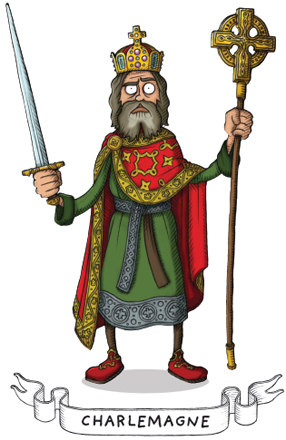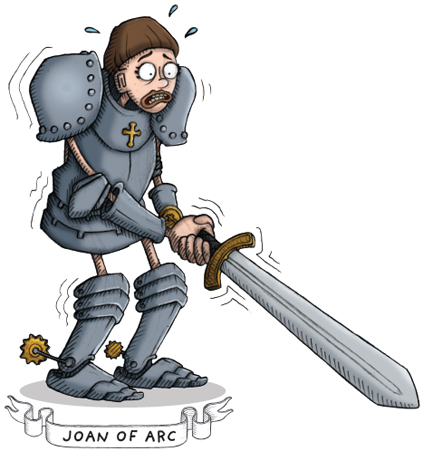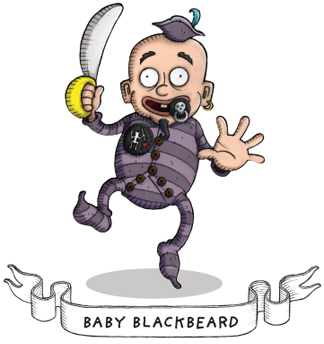

480 BC
Spartan King Leonidas died defending a narrow pass (a path through the mountains) at the Battle of Thermopylae. He was leading the united Greek citystates in a battle against the Persians.
356 BC
Alexander the Great, King of Macedonia, was born. The vast empire he conquered included the whole of Greece.
259 BC
Qin Shi Huangdi was born around this date. He united the warring states of China and became the ‘First Emperor’ of China.
109 BC
Spartacus, the Roman gladiator who led a huge slave revolt, was born around this date.
100 BC
Julius Caesar was born. He became too powerful and upset the ancient Roman senators – who murdered him in 44 BC.
69 BC
Egyptian Queen Cleopatra was born. She had two powerful Roman boyfriends, including Julius Caesar, but was defeated by the future First Citizen of Rome, Augustus Octavian.
AD 43
The Romans invaded Britain and conquered much of the South. Roman rule would last over 350 years.
30
Boudica, queen of the British Iceni tribe, was born around this date. She fought the Romans ferociously until she was defeated at the Battle of Watling Street.
453
Barbarian leader Attila the Hun died, after a lifetime on the rampage. Soon after, the Western Roman Empire fell and the Dark Ages began in Europe.
500
Around the year 500, the Huns destroyed the Gupta Empire in northern India.
624
Chinese Empress Wu Zetian was born. She started out as one of the emperor’s many concubines (a kind of second-class wife), but became the only empress ever to rule China.
742
Charlemagne, the King of the Franks, was born. He battered the Saxons and the Lombards (among others), and was crowned the First Emperor of what became known as the Holy Roman Empire.
873
Ivar the Boneless, fearsome Viking warrior and king, died around this date, having spent his life pillaging England and Ireland. Meanwhile, the huge and highly cultured Islamic Empire included Spain, North Africa, Persia (Iran) and Syria.
1028
William the Conqueror was born around this date. The Norman Duke conquered England after one of the most famous battles in English history, the Battle of Hastings in 1066. Sixty or so years before, Viking Leif Ericson had made his first voyage to North America.
1162
Genghis Khan, conqueror and ruler of the vast Mongol Empire, was born around this date. Meanwhile, the Native American Anasazi people were building cliff dwellings in the American south-west.
1305
William Wallace, who fought to kick the English out of Scotland, died in 1305. He was hanged, drawn and quartered by English King Edward I. Around 50 years later, the Black Death was at its worst, killing millions throughout Europe.
1412
Joan of Arc, the young girl who led the French army to victory against the English, was born around this date.

1451
Christopher Columbus, was born. After he landed in the West Indies in 1492, lots of Europeans followed. Soon after, the Spanish conquered the Aztec Empire in Central America, and the Incan Empire in South America. Also around this time, the printing press was invented.
1530
Ivan the Terrible, the first ruler of the whole of Russia, was born. In the same year, or thereabouts, Grace O’Malley, the fearsome Irish pirate queen, was born. Also in the same year, the first Mughal Emperor, Babur, died (he was a descendant of Genghis Khan, and Aurangzeb’s great, great, great grandfather).
1543
Samurai warrior Tokugawa Ieyasu was born. He became Shogun (leader) of all Japan and brought peace to the country (but only after a lot of violence).
1618
Aurangzeb, the last Mughal Emperor, was born. Not long afterwards, the Pilgrim Fathers sailed to America aboard the Mayflower and became the second successful English colony in North America.
1680
Notorious pirate Blackbeard was born around this date. He plundered the seas off the coast of North America, which had been settled by Europeans since 1565.

1758
English naval hero Lord Nelson was born. He grew up to defeat Napoleon at the Battle of Trafalgar.
1769
Napoleon, French general and eventually Emperor of France, was born, and expanded the lands of Revolutionary France. Meanwhile Captain Cook was making maps of Australia and New Zealand, and colonies in America fought the Revolutionary War to become the United States of America.
1809
Abraham Lincoln, the United States President who abolished slavery, was born.
1820
Fearless ex-slave and Underground Railway conductor, Harriet Tubman, was born around this date. The slave trade had been made illegal in Britain thirteen years previously, but despite this, slavery was allowed to continue in the United States, the British Empire and many other parts of the world.
1822
Ulysses S Grant was born, Union general in the bloody American Civil War. Meanwhile the Industrial Revolution was well underway, changing the way people lived and worked forever.
1831
Sitting Bull was born, leader of the Sioux Native Americans who fought against settlers to keep the Sioux in their homeland. Slavery was abolished in the British Empire two years later.
1862
Mary Kingsley, intrepid Victorian explorer, was born. Three years later, slavery was abolished in the United States.
1868
English navy officer and explorer, Scott of the Antarctic, was born. Two years after his death near the South Pole, the First World War began in 1914, which killed more than 15 million people.
1948
Gandhi, who led peaceful protests to make India independent from Britain, was assassinated. He died in the middle of a century that saw revolutions in China, Russia, Mexico and other countries, and two World Wars.